In this week's case discussion from Dr Terry Harvey, this 20x17mm pigmented lesion is present on...
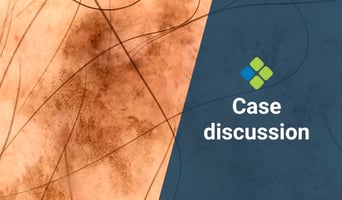
Acquire near-expert knowledge in screening lesions on children, young adults and older patients using dermoscopy.
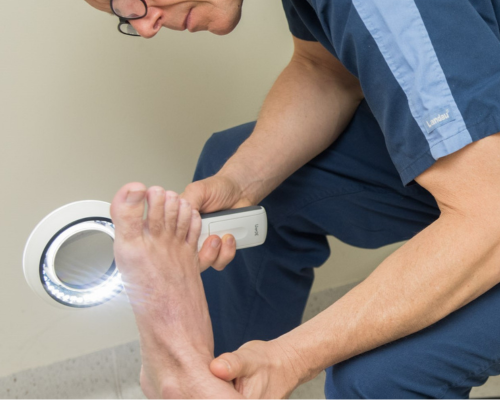
Gain a new dimension to your clinical practice as you become equipped to handle a broad spectrum of age groups, skin types and lesion types, enabling you to assess skin lesions with the utmost confidence.
- Ideal for practitioners who wish to gain expert knowledge in dermoscopy.
- Delivered in collaboration with the International Dermoscopy Society and CPD-accredited.
- Presented by the world's leading dermoscopy experts including Prof Harald Kittler (Austria), A/Prof Aimilios Lallas (Greece), A/Prof Iris Zalaudek (Italy), and more.
- This course is for medical doctors, International Medical Graduates, registered nurses, and degree-qualified health professionals.
Fulfils 50 hrs for medical professionals in Australia
100% online
$1995
Special rates available
80 hrs
Self-paced
*provided an outcome measurement activity with a minimum of 5 hours is completed.

- Learn to detect skin abnormalities early when screening children and young adults.
- Understand how to effective screen older patients.
- Confidently assess lesions in various skin types including dark, fair, and sun-damaged skin.
- Apply dermoscopy to detect diverse lesion types such as flat/nodular and pigmented/non-pigmented lesions.
- Manage patients with multiple moles, ensuring efficient care and early detection of malignancies.
This module introduces the epidemiology of nevi and melanoma in children. The module discusses the appropriate steps to take when conducting skin screening on young children. It then discusses the difference in pre-pubertal and post-pubertal children, in terms of total nevus count, type of nevi and melanoma risk. Dermoscopic images are used throughout the presentation to discuss the different melanocytic lesions found in children. The module also outlines the dermoscopic clues and patterns to assist in diagnosing problematic lesions in children.
This module focuses on the diagnostic strategies to use when screening young adults - individuals after puberty up to the age of fifty. It outlines effective screening techniques to determine whether to excise skin lesions in young adults. Dermoscopic images are used throughout the presentation to explain the different characteristics of lesions seen at birth, through to young adults and to elderly individuals. The module also explains the different morphologic types of nevi and tumours commonly found in young adults and how to manage identify and manage suspicious skin lesions.
This module focuses on identifying the problematic lesions commonly found in elderly patients - individuals aged sixty or older. It discusses the correct steps to take when screening elderly patients with pigmented and non-pigmented skin lesions, including melanocytic and non-melanocytic neoplasms. The module explains the use of specific dermoscopic clues and patterns including imaging, to diagnose melanoma in its early stages whilst recognising the myriad of benign lesions.
This module focuses on identifying lesions in different skin types including fair or dark and sun-damaged skin. It covers an overview of factors that influence the morphology of skin tumours and then discusses the skin-type related nevus patterns and clues to consider for diagnosis. The module also discusses the skin-type related pattern of epithelial skin malignancies, the age-related frequencies of skin tumours, and finally, the differential diagnosis of flat, pigmented macules on sun-damaged facial skin. Dermoscopic images are presented throughout the module to assist with the above discussion.
The module outlines the four main categories of melanoma lesions: lentigo maligna, superficial spreading, acral lentiginous and nodular melanoma. These categories of lesions represent distinct histopathologic subtypes of melanoma and have different dermoscopic presentations. The module focuses on the superficial spreading and nodular type of melanoma and then discusses pigmented and non-pigmented lesions. It explains in detail the use of dermoscopic clues to differentiate pigmented and non-pigmented variants of melanocytic and epithelial skin cancer. Common and uncommon dermoscopic clues used in diagnosing nodular skin tumours are included. Dermoscopic images to support learning are presented throughout the module.
This module discusses the use of digital dermatoscopy to effectively manage and monitor patients with multiple moles. Images are used throughout the presentation to discuss dermoscopic clues to identify and differentiate between growing nevi and melanoma. The module covers melanoma risk and phenotype of numerous large nevi that have a common genetic basis. It outlines that removing these nevi does not necessarily reduce the risk of having melanoma. The module discusses the term ‘atypical’ or ‘dysplastic nevus’. These terms are used to indicate the relationship of a nevus to melanoma and may be used to indicate a specific precursor of melanoma or melanoma simulators.
This module discusses the use of dermoscopy in diagnosing, managing, and monitoring treatments of non-melanoma skin cancers. It simplified and grouped the various criteria of BCC into four main categories: pigmented structures, vessels, ulceration, and translucency. Dermoscopic images are used throughout the presentation to discuss the categories in detail. The module also discusses management options when dealing with BCC and factors affecting the management choice. The module concludes with a discussion on how to manage and treat different SCCs.
Most melanomas are morphologically and dermoscopically evident but there are still some that are featureless. This module focuses on the management rules and diagnostic strategies used in detecting and diagnosing melanomas. The module then outlines the seven management rules to use in detecting melanoma. These include full body checks on high-risk patients, apply dermoscopy on all lesions, excise or monitor solitary lesions, monitor patients with multiple nevi, excising doubtful nodules and the integration of clinical and histopathologic findings. Dermoscopic images are presented throughout the module to assist with the management rules discussions. The module finishes with one final rule - to excise spitzoid nodules.
If you're not interested in pursuing a full certificate in this field but simply want to enhance your skills in specific topics covered in this course, you can access the content of this and other courses for a flat fee of $83 per month (paid annually) within HealthCert 365.

Professor at the Department of Dermatology, Medical University of Vienna, Austria
Professor Harald Kittler has a special clinical interest in dermoscopy of pigmented skin lesions. His main research interest is digital dermoscopy, follow-up of pigmented skin lesions, and computer assisted digital dermoscopy. Harald has been working for 10 years in the field of dermoscopy and has published a number of scientific articles especially in the field of digital dermoscopy and dermoscopic follow-up of melanocytic nevi.

Dermatologist-Venereologist, First Department Of Dermatology, Aristotle University, Greece
President, International Dermoscopy Society
Aimilios Lallas is an Associate Professor of Dermatology at the First Department of Dermatology of Aristotle University in Thessaloniki, Greece. He is specialised in skin cancer diagnosis with non-invasive techniques, as well as in the management of skin cancer patients.
His main field of research interest is dermoscopy of skin tumours, the application of the method in general dermatology and the improvement of the management of oncologic patients. He is an author of more than 330 scientific papers published on Pubmed Central, most of them on dermoscopy and skin cancer. He is an editor of eight books and author of several book chapters on dermoscopy. He is a co-investigator in several Phase III Clinical trials on skin cancer treatment. He has been awarded several scholarships and scientific awards.
Over the last years, A/Prof Lallas has established scientific collaboration with numerous colleagues from several countries and has supervised the training of numerous fellows from different countries. He is an invited speaker in several domestic and international congresses and meetings, mainly on dermoscopy and on skin cancer diagnosis and management. He is particularly involved in teaching activities on dermoscopy, having organised and participated in numerous domestic and international courses.
A/Prof Lallas is currently the President of the International Dermoscopy Society.

Scientific Coordinator, Skin Cancer Unit, ASMN-IRCCS, University of Modena and Reggio Emilia, Italy
Associate Professor Caterina Longo is a board-certified dermatologist specialising in the diagnosis and treatment of skin cancers. Although providing the best care possible for patients remains her primary goal, she also committed to education and clinical research. She is actively involved in clinical research and has published numerous papers on topics related to skin cancer with an emphasis on melanoma, atypical nevi, Spitz/Reed nevi and non-melanoma skin cancer.
Caterina’s research interests are focused on the use of imaging instruments such as dermoscopy and confocal laser microscopy to recognise skin cancer early in its development. She pioneered the use of ex vivo fluorescence confocal microscopy for micrographic Mohs surgery applied for basal cell carcinoma and other visceral tumours. Caterina lectures on these topics both nationally and internationally.

Head of the Dermatology Clinic of the University of Trieste, Italy
Associate Professor Iris Zalaudek is a board-certified dermatologist and Head of the Dermatology Clinic of the University of Trieste, Italy. Since 2016, she has been President of the International Dermoscopy Society, and was previously the Research Director of the Non-Melanoma Skin Cancer Unit at the Medical University of Graz, Austria.
Her main research fields are related to dermato-oncology and include non-invasive skin imaging techniques, as well as topical and systemic treatment of skin cancer. Moreover, she is engaged in the development of modern teaching methods such as online distant courses and tele-dermatologic services. She is Director of the Master of Science program entitled "Dermoscopy and Preventive Dermato-Oncology" of the Medical University of Graz, Austria.
Iris has published more than 450 articles, of which 358 (267 full papers) have been cited in PubMed. Her combined publications have received an impact factor of 1003 and a h-index value of 36 (by April 2017). In 2003 her work was awarded by the Hans-Weitgasser Price from the Styrian Association of Dermatologists and in 2008 she was awarded the Best Researcher of the Medical University of Graz, Austria.

Dermatologist, Santa Maria Nuova Hospital, Reggio Emilia, Italy
Dr Elvira Moscarella is a dermatologist at the Santa Maria Nuova Hospital in Reggio Emilia, Italy. She acquired her medical degree in 2005 at the Second University of Naples before completing her residency in dermatology and venereology at the University’s Department of Dermatology. In 2008, Elvira undertook further education in dermoscopy and confocal microscopy. She is a member of the European Academy of Dermatology and Venereology and the International Dermoscopy Society, and is Editor in Chief of the latter’s newsletter and case of the month. Elvira’s main interests are in dermoscopy and reflectance confocal microscopy, and their use in skin cancer medicine.

Study at your own pace and to your own schedule.

Easily meet your CPD requirements and gain valuable skills – all in one place for $83 per month.
$1995
.
*provided an outcome measurement activity with a minimum of 5 hours is completed.
Bundle two courses and save 5%, or three courses and save 10% upon enrolment.
Talk to us about deferred payment options, registrar scholarships and special rates.
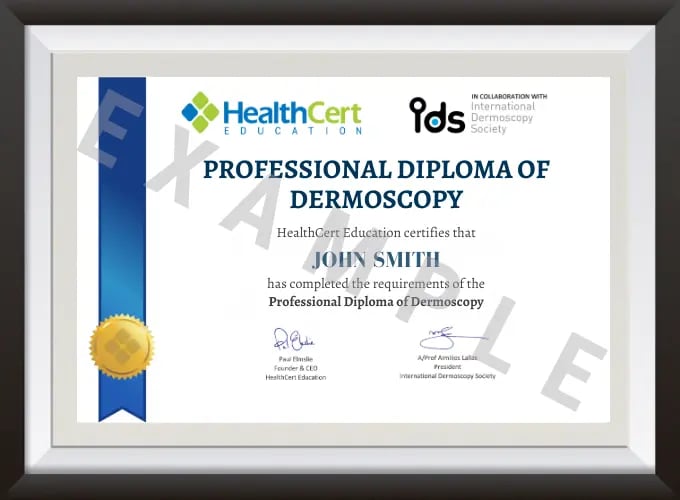

I would recommend the Professional Diploma of Dermoscopy to any GP interested in skin cancer and dermatology. The course provided systematic and thorough coverage of the fundamentals of dermoscopy, with reinforcement by presentations from varied perspectives, which were practically oriented and with support. This was a valuable course, developing the fundamentals, evolution and application of dermoscopy, and presented in a way that blends with busy general practice. I have had much knowledge reinforced and learned much more! Thank you!
Dr L. Ebert
I was very happy with the Professional Diploma course and I have already recommended it to my other colleagues who are interested in doing skin cancer medicine and GPs who like to do a bit of skin cancer. It was a wonderful, helpful course. I acquired extensive knowledge in dermoscopy.
Dr R. Targett
Detailed, in-depth lectures given by specialists in the field that are very relevant to clinical practice.
Dr S. Lai
Fantastic course! I am now very confident in using dermoscopy in my clinical practice and use this skill in every full skin examination. The course featured expert presenters, thorough teaching in dermoscopy, and flexible online learning.
Dr C. Beveridge
This is a really well run and informative course. Well worth the time and money. The lecturers are outstanding and the content of the course is totally relevant and useful. A big thank you to all involved in providing the course - very much appreciated.
Dr A. Phillips
The Professional Diploma of Dermoscopy was a very engaging learning experience which gave an inspiring insight into the progress that has been made in dermoscopy, featuring knowledgeable and credible lecturers.
Dr J. Urlwin
| RACGP Activity Number | ACRRM Activity Number | Activity Title | Education Hours | Performance Hours | Outcome Hours | Total Hours | ||
|---|---|---|---|---|---|---|---|---|
| 407910 | 28541 | Screening older patients | 407910 | 28541 | 4 | 6 | 0 | 10 |
| 407931 | 28545 | Dermoscopy for the management of non-melanoma skin cancer | 407931 | 28545 | 4 | 6 | 0 | 10 |
| 407905 | 28540 | Screening young adults | 407905 | 28540 | 4 | 6 | 0 | 10 |
| 407936 | 28546 | Management rules to detect melanoma | 407936 | 28546 | 4 | 6 | 0 | 10 |
| 407903 | 28539 | Screening children | 407903 | 28539 | 4 | 6 | 0 | 10 |
| 407922 | 28543 | Types of lesions - Flat/nodular, pigmented/non-pigmented | 407922 | 28543 | 4 | 6 | 0 | 10 |
| 407926 | 28544 | Management of patients with multiple moles | 407926 | 28544 | 4 | 6 | 0 | 10 |
| 407917 | 28542 | Lesions in different skin types | 407917 | 28542 | 4 | 6 | 0 | 10 |
| 593287 | 31373 | Clinical Audit of Dermoscopy | 593287 | 31373 | 0 | 2 | 31 | 33 |
| Grand Total | 113 | |||||||
The Professional Diploma of Dermoscopy has been designed to meet the needs of medical professionals who wish to acquire near-expert level skills in the use of dermoscopy. The course is suitable for medical doctors and degree-qualified nurses who work under their supervision, as well as for International Medical Graduates.
Participants must have successfully completed the HealthCert Advanced Certificate of Dermoscopy course (or a qualification deemed equivalent) and HealthCert also highly recommends successful completion of at least 50 cases of dermoscopy prior to enrolment. Equivalent alternatives include practical experience, other qualifications or successful completion of the Advanced Certificate examination.
Participants do not have to pass an IELTS test but, as the courses are delivered in English, proficiency in listening, reading and writing English is assumed.
Participants will require access to a computer/laptop, an internet connection and a basic level of technology proficiency to access and navigate the online learning portal.
Professionally accredited qualifications and prior studies may be recognised for entry into this course. Please send an email to credit@healthcert.com for an individual assessment of your prior qualifications and experience. This email should contain information about your educational history and work experience that specifically pertain to the content and procedures covered in the Professional Certificate of Dermoscopy and Advanced Certificate of Dermoscopy. Please include any applicable certificates and course outlines from previous education. The relevant Course Chair will make a determination on your application within two to three weeks.
Doctors who have completed the UQ Certificate of Advanced Dermatoscopy and Histopathology or other formal dermoscopy training can receive academic credit towards the Professional Diploma (the final course in the three-part program) if they achieve a pass mark in the exams of the first two certificate courses Professional Certificate of Dermoscopy and Advanced Certificate of Dermoscopy. Upon successful exam completion, doctors can directly progress to (and will only need to pay for) the Professional Diploma of Dermoscopy course.
NOTE: While the Professional Certificate of Skin Cancer Medicine course covers Dermoscopy, it does not qualify for recognition of prior learning in the Certificate and Professional Diploma of Dermoscopy program which quickly moves on to more advanced dermoscopy techniques, including the Chaos and Clues method and the assessment of lesions on the face and acral sites. Professional Certificate of Skin Cancer Medicine alumni should begin with the Professional Certificate of Dermoscopy course.
This certificate course meets the minimum 50 hours CPD annual requirement across all three mandatory CPD activity types.
Upon successful completion of the course requirements, course participants will receive the certificate of the Professional Diploma of Dermoscopy.
This certificate course:
Australia-based course participants, please note that HealthCert certificates are not accredited by TEQSA or ASQA and do not fall within the Australian Qualification Framework. All HealthCert certificates are professional development awards, accredited by RACGP, ACRRM and RNZCGP.
To learn more about the delivery of certificates in Australia and overseas, please visit our FAQs.
Professional Diploma Pathway
This course is the final stage of the three-part professional diploma pathway. The full pathway is Professional Certificate of Dermoscopy, Advanced Certificate of Dermoscopy, and Professional Diploma of Dermoscopy.
RPL with The University of Queensland
The University of Queensland Master of Medicine (Skin Cancer) includes the unit IMED7002: Clinical and Dermatoscopic Diagnosis in Skin Cancer Practice. Credit precedence has been established for this subject if students have completed all three of the following HealthCert dermoscopy qualifications: Professional Certificate of Dermoscopy, Advanced Certificate of Dermoscopy and Professional Diploma of Dermoscopy to the unit IMED7002. Doctors who have applied and been accepted into the Master of Medicine (Skin Cancer) program may apply for Recognition of Prior Learning for IMED7002. View The University of Queensland's Master of Medicine (Skin Cancer) program here.
RPL with Torrens University
This postgraduate pathway is for General Practitioners and degree-qualified medical practitioners who have successfully completed a HealthCert Professional Diploma (all three levels) in Skin Cancer Medicine, Skin Cancer Surgery or Dermoscopy. The following postgraduate course is offered entirely online through Torrens University: Master of Business Administration (MBA). Recognition of Prior Learning (RPL) is available for two general electives for any HealthCert Professional Diploma. In cases where a HealthCert alumni has completed two Professional Diplomas, they will be able to apply for four general electives towards the MBA. You can find more information here. This will be helpful to further develop business, management and leadership capabilities. Please apply directly to Torrens University here.
HealthCert Clinical Attachments
Course participants who successfully complete the HealthCert Professional Certificate of Skin Cancer Medicine may continue their professional development by completing a HealthCert Clinical Attachment at a clinic or university teaching hospital to further develop professional knowledge. A HealthCert Australian Clinical Attachment is recommended as the first clinical attachment after completing the HealthCert dermoscopy qualifications and a HealthCert International Clinical Attachment is recommended for subsequent clinical attachments.
This organisation is an RACGP-accredited CPD provider under the RACGP CPD Program.
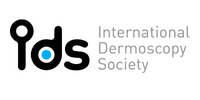

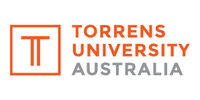
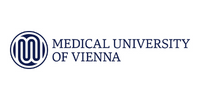
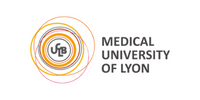


Don't see your question? Explore other faqs or talk to us.
Fees will vary based on the program and study option selected (fully online vs online + optional practical workshop). Payments can be made upfront or in monthly instalments. Special rates and various payment options are available. GP registrars and doctors in training enjoy a scholarship of up to $500. Talk to us to learn more.
Completion of any HealthCert course or attendance at an event will enable you to access the HealthCert Alumni Program which includes:
HealthCert Education is pleased to issue digital credentials for alumni. Digital credentials are a permanent online record of your successful completion of a HealthCert course and are issued to all course participants in addition to PDF certificates. If you are based in Australia, you also have the option to order a hard copy of your digital certificate for a small additional fee.
The recommended study duration of this certificate course is 80 hours, which includes study of the pre-course activities and readings, online lectures, live tutorials, and online assessment. This self-paced course offers the flexibility of 100% online study in your own time, at your own pace, in your own home or office, with no mandatory face-to-face requirements. You are not required to be online at specific times but can view and replay video lectures at your convenience.
All HealthCert courses meet World Federation of Medical Education standards. This certificate course qualifies for CPD hours from the Royal Australian College of General Practitioners (RACGP) and the Australian College of Rural and Remote Medicine (ACRRM) in Australia. It is recognised by the Royal New Zealand College of General Practitioners (RNZCGP) in New Zealand. It is recognised by the Hong Kong College of Family Physicians (HKCFP) in China. It is a self-submitted activity in Dubai and the United Kingdom. It is a self-submitted activity through the College of Family Physicians in Canada. If you live or work outside one of the above-mentioned countries, please contact us on admin@healthcert.com to discuss whether this course can be recognised in your country.
Want to stay up-to-date with the latest case studies, podcasts, free video tutorials and medical research articles pertinent to primary care?
Our Education Advisors can assist you with any queries and tailor our education pathway to suit your current expertise, interests and career goals.